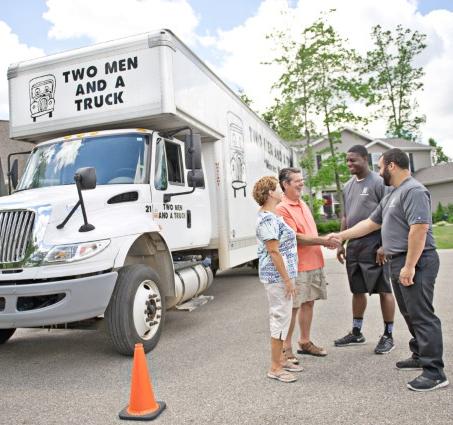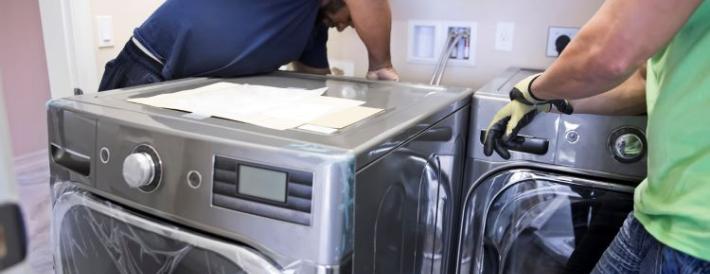For certain home objects and appliances, moving them yourself can be a manageable and easy process, and might even be taken on as a solo mission. For other items, this is not the case, and it requires extensive planning, manpower, and moving equipment.
Two appliances that would fall under this category include a washer and dryer, as both are extremely heavy, awkward, and difficult to move. When it comes to figuring out how to move a washer and dryer, it’s imperative you use equipment like a dolly for your own safety, the safety of the appliance, and your home as you move it.
We’ve learned a thing or two over the years about what you should and shouldn’t do during this process. If you’re going to attempt this job on your own, it’s important to follow these tips so you can keep your washer and dryer protected, avoid damaging your home or business while you move, and avoid injury to yourself during the process.
Like any home object or appliance, the first and most important thing to remember is this: don’t move more than you can handle. If you don’t have the resources or help available to do this on your own, try calling your local TWO MEN AND A TRUCK to get the job done right.
Now, let’s review the steps for safely moving a washing machine and dryer!
Step-by-Step Instructions
-
1Step 1Empty both the washer and dryer and prep the washing machine before moving
First and foremost, you want to remove any clothes to limit any additional weight in either appliance. When it comes to the washing machine, run a cycle the day before you plan on moving it and then leave the door open, allowing it to dry out to prevent mold or mildew build up during the moving process.
-
2Step 2Unplug the washer and dryer
You’ll want to turn off the breaker where these two are hooked up first, then unplug both before any moving happens. Once you have properly disconnected the power source, use some tape to secure the stray plug so it’s not dangling and in the way while moving.
-
3Step 3Make sure the washer is disconnected from the water
An additional step here that isn’t required with the dryer is disconnecting your washer from the water source in your home. There are generally two water sources coming to a dryer – one hot, one cold – so turn off the water coming to the washer before disconnecting.
-
4Step 4Stabilize the water drum in your washer
Each washer has a drum that helps move and spin the clothes around inside during a wash cycle. Generally, the washer will come with some type of shipping bolts or pieces to help secure this in place during a move. Use these to make sure it’s not moving around while you’re lifting and moving the washer.
-
5Step 5Measure all doorways and hallways before moving
An important step to remember before moving anything, you’ll want to measure out all areas you’ll move the appliances through ahead of time. Make sure your washer and dryer will fit through any doors and hallways it might have to go through or measure the width of any stairways if it’s going up or down stairs during the moving process.
-
6Step 6Use professional moving equipment to protect your washer and dryer
We say it for all items being moved, but protecting your belongings with proper moving equipment is vital to avoiding damages. Use moving pads for both your washer and dryer to give yourself some extra padding and protection during the moving process.
-
7Step 7Don’t move your washer and dryer without a moving dolly and ratchet straps
It’s a step worth repeating. If you’re moving a washer or dryer, it’s imperative you use a moving dolly and ratchet straps for both. These are large, heavy, and awkward items that require the most secure moving techniques to avoid any accidents. Using this type of professional equipment while moving your washer and dryer will give you the best chance at a successful move.

Thinking of Moving Yourself?
Think Again!
While moving yourself may seem less expensive... the costs add up.
Do-It-Yourself Moving Costs:
- Truck Rental
- Mileage
- Fuel Charge
- Additional Insurance
- Equipment Rental
(straps, rope, furniture pads, bungee cords, stretch wrap, dollies, etc.)
- Time
- Boxes & Packing Supplies
- Possible Damages
(belongings, relationships, & injuries)
- Recruiting Friends to Help
- Food & Beverages
- Chiropractor Visits
- Packing a Truck
- Learning How to Maneuver a Moving Truck
- Broken Promises
Call TWO MEN AND A TRUCK
We can move as much or as little as you need while fitting your schedule & budget!







